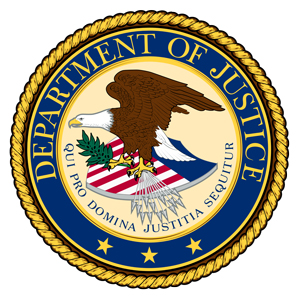April 19, 2021 - ALEXANDRIA, Va. – A Senior Executive Service (SES) employee of the National Aeronautics and Space Administration (NASA) pleaded guilty today to submitting fraudulent  applications for over $350,000 in COVID-19 economic relief loans and benefits.
applications for over $350,000 in COVID-19 economic relief loans and benefits.
“Despite holding a senior executive position at NASA, the defendant applied for over $350,000 in fraudulent loans and benefits,” said Raj Parekh, Acting U.S. Attorney for the Eastern District of Virginia. “In doing so, he essentially treated COVID-19 relief programs as a personal piggy bank, using funds intended to provide pandemic relief for small businesses and the unemployed to pay down his credit card debt, pay off loans for a residential pool and minivan, and pay a dog-breeder, among other personal expenses. EDVA will continue to hold accountable individuals who exploit a national economic crisis in order to unlawfully enrich themselves at the expense of those in genuine need due to the pandemic.”
According to court documents, Andrew Tezna, 36, of Leesburg, fraudulently submitted three loan applications to two financial institutions (totaling $272,284) under the Paycheck Protection Program (PPP), a federal initiative designed to help businesses pay their employees and meet their basic expenses during the COVID-19 pandemic. Tezna also submitted two Economic Injury Disaster Loan Program applications to the Small Business Administration (totaling $69,500), and he applied for COVID-related unemployment benefits from Virginia, ostensibly for his mother-in-law, who was retired and did not qualify for the benefits (totaling $15,950). In support of the fraudulent PPP loan applications, Tezna submitted fabricated IRS tax returns and fraudulently claimed payroll expenses that did not exist.
“People’s greed, especially when it involves fraudulently obtaining funds meant to help those in need, is truly disappointing,” said Darrell J. Waldon, IRS-CI Acting Special Agent in Charge of the Washington D.C. Field Office. “We will continue to work with our agency counterparts to ensure all are held accountable.”
Tezna successfully obtained over $285,000 from the PPP loans and unemployment benefits. The bulk of the money came from PPP loans applied for in his and his mother-in-law’s names for businesses that did not exist. He then spent the funds, among other things, to pay off a personal loan for a residential pool, to pay off a personal loan for a minivan, to pay off personally incurred credit card debt, for a down payment on a new car, and to pay a dog-breeder. In addition, Tezna also admitted to filing a false Financial Disclosure Report with NASA.
“As a NASA senior executive, the Agency placed a great deal of trust in Tezna. Taking advantage of the CARES Act to fraudulently obtain PPP loans not only violated the Agency’s trust, but the trust of American people that sought assistance for the legitimate needs of their struggling businesses,” said Special Agent in Charge Mark J. Zielinski, NASA Office of Inspector General, Eastern Field Office.
Tezna pleaded guilty to bank fraud and is scheduled to be sentenced on July 16. He faces a maximum penalty of 30 years in prison. Actual sentences for federal crimes are typically less than the maximum penalties. A federal district court judge will determine any sentence after taking into account the U.S. Sentencing Guidelines and other statutory factors.
Raj Parekh, Acting U.S. Attorney for the Eastern District of Virginia; Darrell J. Waldon, IRS-CI Acting Special Agent in Charge of the Washington D.C. Field Office, and Special Agent in Charge Mark J. Zielinski, NASA Office of Inspector General, Eastern Field Office, made the announcement after Senior U.S. District Judge Claude M. Hilton accepted the plea.
Assistant U.S. Attorneys Kimberly M. Shartar and Jamar K. Walker are prosecuting the case.
A copy of this press release is located on the website of the U.S. Attorney’s Office for the Eastern District of Virginia. Related court documents and information are located on the website of the District Court for the Eastern District of Virginia or on PACER by searching for Case No. 1:27-cr-77.
Source: DOJ








